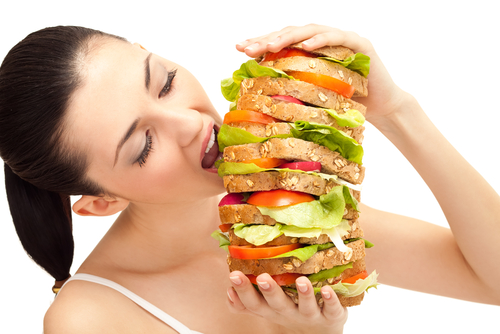To understand why we eat, it is essential to first understand what hunger and appetite are as they are two distinct concepts that are often used as synonyms in society.
Whilst hunger is the instinct of survival that drives us to feed when the body requires food, appetite is the feeling that we need to eat that is influenced by psychological aspects of the individual concerned (desire to eat for pleasure, happiness, boredom, sadness, anxiety etc).
Estefanía Schoendorff – Neolife Nutrition and Nursing Unit
Tania Mesa – Director of the Neolife Nutrition and Nursing Unit
It is important to correctly understand the difference between “hunger” and “appetite” if we are to achieve proper nutritional education.
A number of great changes have occurred over time in our society. We are not the same as we were 60 years ago: we do not eat the same thing, nor do we move in the same way.
Due to changes in social, cultural, technological and industrial attitudes we now face nutritional imbalances that are the result of our misinterpretation of sensorial-organoleptic signals and eating behaviors. Our body has undergone a corporal transformation to such an extent that some of us are overweight or obese, which have both been shown to have causal links to diseases such as diabetes, dyslipidemia and cancer…
As a result, it is essential to know why we eat: Do we eat because we are hungry or to satisfy our appetite?

APPETITE:
It is important to understand that appetite is selective and usually appears suddenly or urgently – typically caused by an emotional feeling. The desire for food in this case is specific: you desire a particular food, the piece of exquisite chocolate cake that you saw the day before in the bakery, or a slice of pizza from your favorite pizzeria, or some popcorn during a movie or lazy afternoon…
But when you finish eating there is no feeling of fullness, you are not full from what you have just eaten. Your brain sends signals for more and more…Soon after you have finished you begin to feel a sense of guilt or sadness for having eaten something that was not beneficial to your health because you have spoilt your diet or because you feel bloated or simply because you have realized that it was not necessary as you were not hungry…
Appetite consists of a cycle; a pleasure is anticipated, you search for the food and finally the food is found but it does not satisfy your physiological or energy requirements. Your appetite has caused an increase in unnecessary, non-nutritious calories that, little by little, will produce excess fat in your body, which will be stored and, in turn, cause the diseases mentioned above.
HUNGER:
Unlike appetite, hunger responds to a physiological need of our body; it is an expression of our desire and urge to eat food.
When our body is hungry and we do not satisfy the need for hunger, the body begins to consume glycogen (an energy storage molecule) by breaking the glycogen down into glucose (an energy source). Part of this energy is transmitted to our brain, muscles and blood cells.
When we experience hunger, we may feel dizzy, experience headaches, stomach pain, tiredness, weakness, sleepiness, fatigue, mood swings and, in extreme cases, fainting. You do not have to wait very long to feel the sensation of hunger because our body requires constant nutrients. Physiological hunger does not correspond to an emotional stimulus, nor to an impulse, hunger does not appear suddenly due to a state of intense stress or anxiety and is not specific to a certain group of foods: it is a basic need of our body that has to be resolved.
Hunger and appetite are, therefore, two distinct concepts, although they are often discussed in the same way. Whilst hunger is the instinct of survival that drives us to feed when the body requires food, appetite is the feeling that we need to eat that is influenced by psychological aspects of the individual concerned (desire to eat for pleasure, happiness, boredom, sadness, anxiety etc).
Currently, as evolved human beings we find it increasingly easy to access all the food we want; whether this is by opening the fridge, or using a mobile application without moving from the couch. This means that today there is an inordinate amount of food and beverages at our disposal: there is much more mass-produced food, pre-cooked food, fast food and food to satisfy “whims”, that is to say, we give in to temptation that is within our reach; but let us not kid ourselves, there are an equal number of healthy alternatives available.
At Neolife we promote a proper nutritional education, through rigorous nutritional management, we encourage patients to adopt an optimal lifestyle suited to their actual needs and we teach our patients to distinguish between hunger and appetite and understand the different ways in which they appear. We live in a world of abundance, but our obligation is to know how to manage such a bounty.
